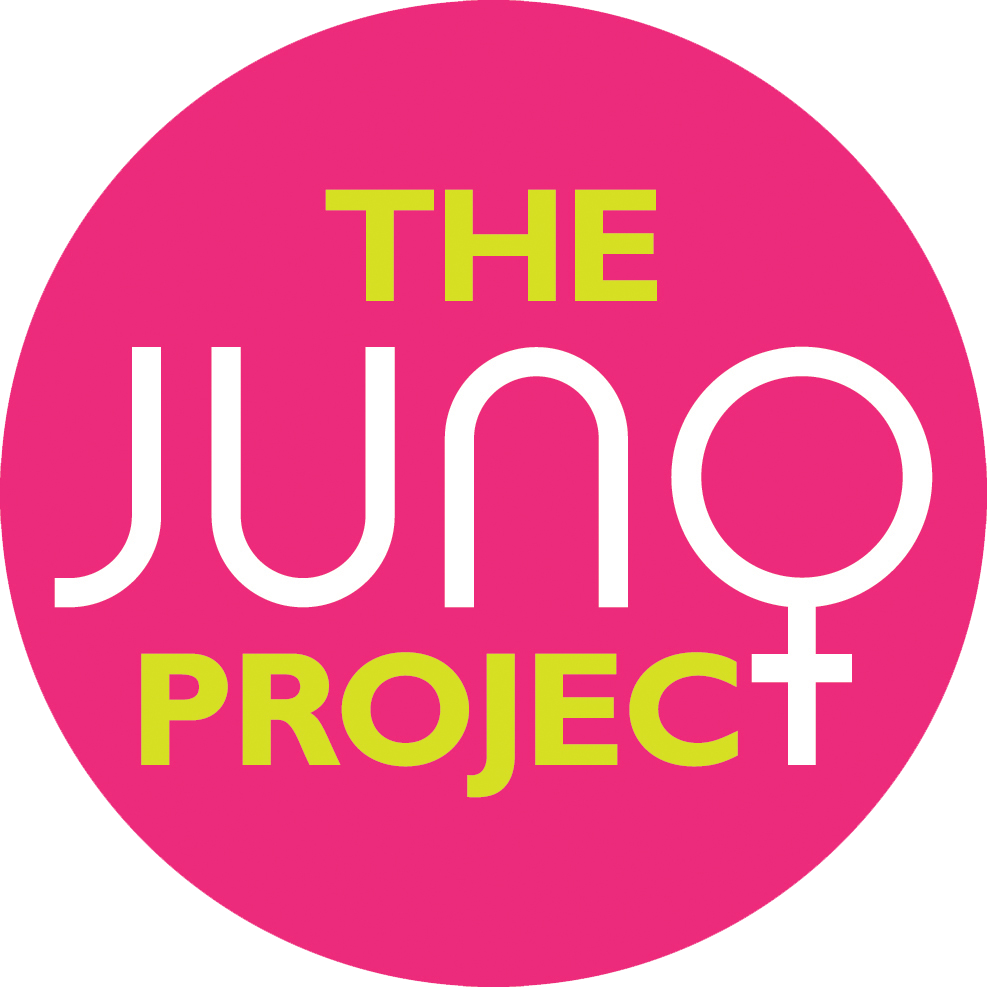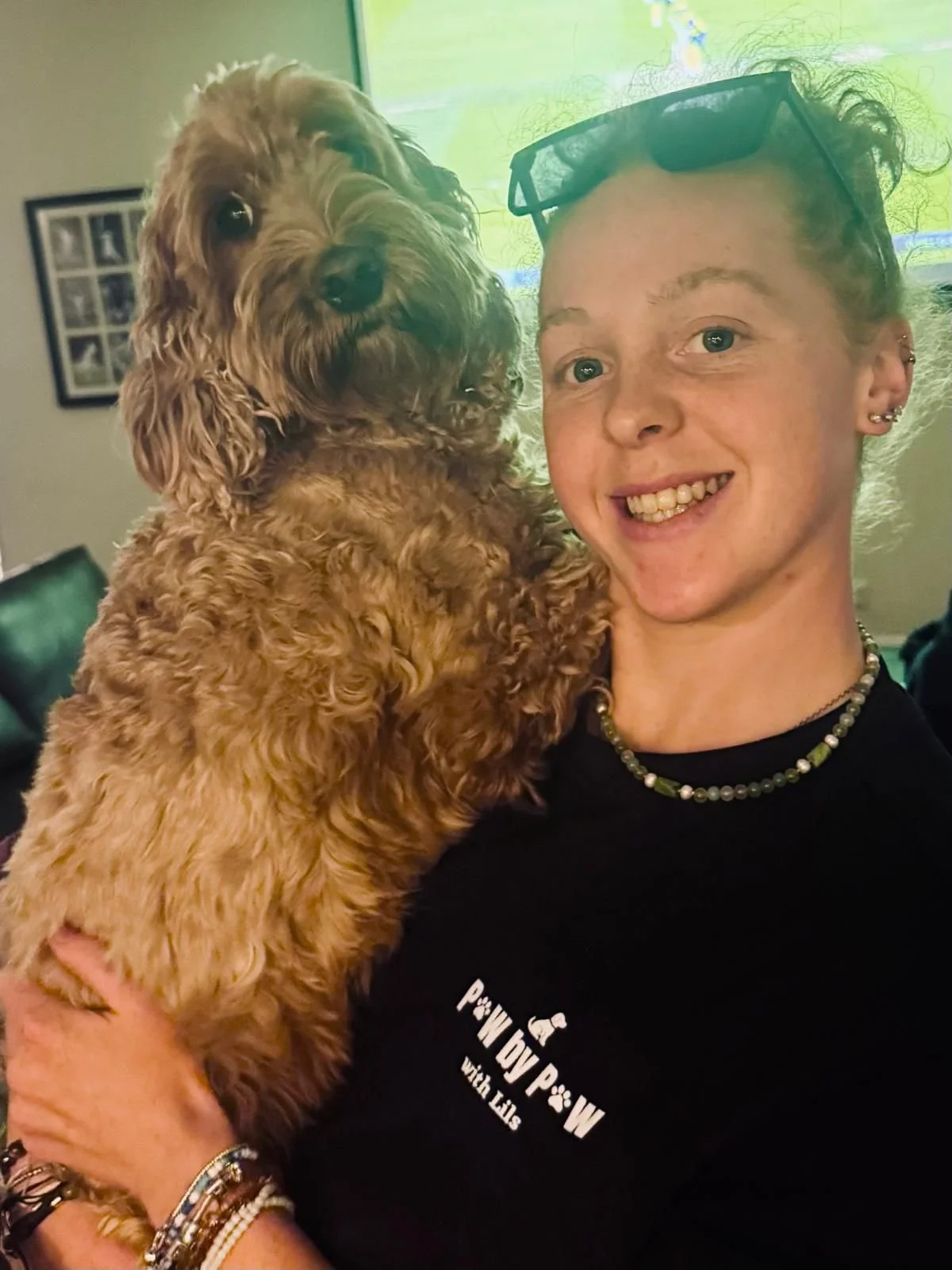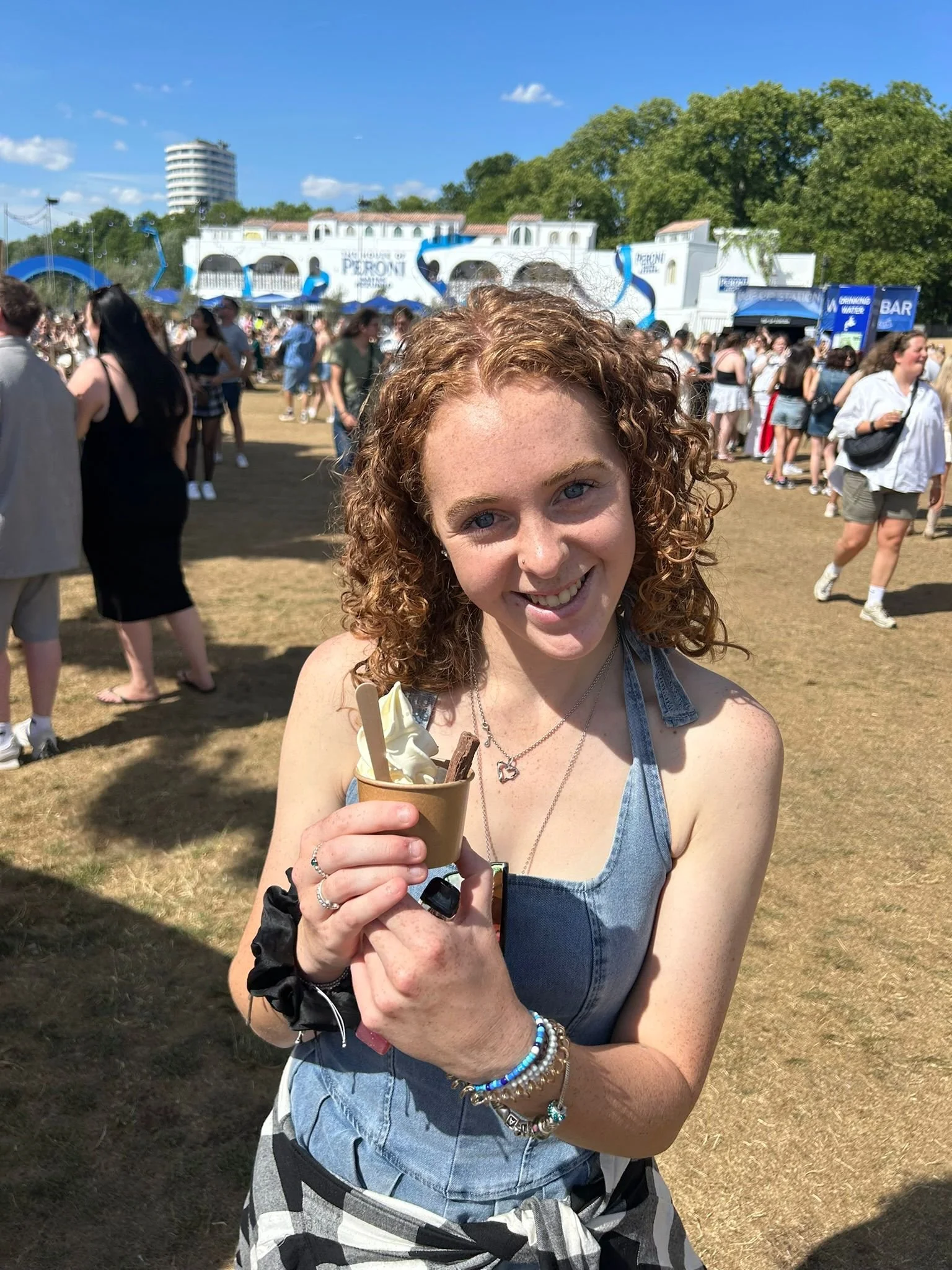The Impact of The Juno Project - Lili’s story
Lili with Loki
The Lili I see before me is not the same person she describes herself as. The Lili of today is bright and full of hope and confidence. She talks enthusiastically about her passion for dogs and her new business as a dog walker and sitter. She says if she could, she’d take home all the rescue dogs that arrive in the stray section of the kennels she used to work in, but she already has two at home.
If you had told Lili at age 11 that she would one day be running her own business, she wouldn’t have believed you. Back then, Lili struggled to get into the right mental space to face the world. She found it incredibly difficult to go to school.
“I struggled in primary school. I felt like the black sheep. It wasn't as easy for me as it was for others. I have dyslexia and dyscalculia, but I didn’t get diagnosed until Year 11. Secondary school was a big struggle for me. I would go to a maths lesson: no clue what’s going on; go to an English lesson: no clue what's going on. There was this massive cloud over my head every morning. I didn’t have any confidence; I was so afraid of getting things wrong. I had such a fear of people turning around to look at me, thinking: ‘How could she not get that right?’ I had a lot of worries about being the centre of attention for the wrong reason.”
Lili also had to cope with being bullied. She began to suffer anxiety and panic attacks. “I told the school what was happening, and they [the perpetrators] would get told off by teachers and heads of years, but it just made it worse. It got to where I was like, you guys can't do any more about it. I'll take it into my own hands, and I'll deal with it.” Angry and frustrated, Lili lashed out physically at the bullies and ended up in trouble.
Compounding Lili’s feelings about school was her parents’ divorce, a time when she says she didn’t really understand what was going on. Lili also moved house several times during this period. She says it all led her to “build a wall” around herself. “I think everyone was protecting me, but I would much rather have been told what was going on. I think that’s why I built the surrounding wall — I wanted to be in my own safe space and be my own protector in a way. I didn't want people to worry. Looking back, I don't think I should have put up that wall because I probably did need a lot of help to process everything.”
Lili with her dog Hero, and Arlo who she regularly looks after
Since she could remember, Lili wanted to work with dogs. “It was always my dream, but then I got into a lot of bad habits, mixing with the wrong people, which made me think, I don't want to do this anymore. I'm going to live carefree and get into trouble. We'd be getting very drunk every Friday, doing things like vaping, being out until God knows what time in the morning, not messaging and making my parents very worried about where I was. Mentally, I got really bad. I felt so bad about how I was making other people feel. I started self-harming, then I felt bad about that too, and the more damage I did. I took it out on myself all the time, and for how I was making other people feel. I felt a lot of shame, for myself, for doing it, and for having other people see what I'd been doing.”
The importance of early intervention
Sadly, Lili’s difficulties, particularly with school, are not unusual. A 2024 report published in the British Medical Journal argued that persistent school absence and emotionally based school avoidance have both risen since the pandemic. At the same time, access to support services has reduced. Something the paper calls the “perfect storm”.
We now know that the impact of emotionally based school avoidance is far-reaching. Outcomes for young people who struggle to go to school can include poor academic attainment, reduced social opportunities and limited employment opportunities. EBSA is also associated with poor adult mental health.
Early intervention is critical.
Lili was enrolled in school counselling for anger management. While a very effective form of intervention, it was not working well for her. “I had a lot of anger, and I just didn’t think the counselling was working for me. I don't think I've ever been as angry as I was then. The school just didn't really know what to do with me.”
Things finally began to change when Lili enrolled in a school programme run by The Juno Project.
“I found out it was from outside the school, which made me look at it differently, and I thought I’d give it a go. But I was nervous. This is a total stranger I have to talk to, and I had a bit of anxiety around that. But the minute I got in there, we got talking, and everything just got a lot easier.
“I did stop becoming so angry. Even my parents noticed. We were a group of six or seven, and hearing what other people had gone through made me realise that I wasn’t on my own. And they spoke about us as if we were adults, not as if we were just 15-year-old girls. Ruth [the facilitator] talked to all of us and built us back up slowly. I wouldn't be walking out of my shoulders up, ready for wherever I was stepping out to. I would feel relaxed. Suddenly, I wasn't alone in how I was feeling.
“We got onto the topic of panic attacks one time, and she'd asked how many of us had gone through them. She asked if we knew what to do, how to stop them. She gave us a lot of useful resources that I still use to this day that can get me out of one so quickly.
“The Juno Project made it a lot easier for me to get into school because I had something to look forward to. Ruth was just so easy to talk to. The way I felt after leaving it was just like an enormous weight had come off.”
Life after school
Lili worried about how she would cope once school was over. She left school with one GCSE, but during that time had been volunteering at a local dog kennel, and they offered her an apprenticeship. “That six-year-old girl’s dream came back,” says Lili.
Does she still need the help and the support that The Juno Project offered?
“I definitely don't need it as much anymore. I'm glad I had it when it was available.
I now think a lot more before reacting to things; before, I would just jump into a fight. Three or four days ago, I was at work and I had a massive panic attack, and I just thought, What did Ruth say? I still use what I was taught in those sessions. I’ve still got my journals from there, which I still write in now sometimes. And I’ve got these little cards with uplifting quotes stuck on my mirror. I look at them and think: OK, I've got this today.
“It’s been four years since I last self-harmed. I've had many times when I felt like relapsing, but the tools I learnt with The Juno Project really helped me. We learned so much about self-esteem and how to cope with all these massive feelings. Slowly, I realised I did not need to do this anymore. I'd find new things to replace it with, better things. Going for a walk is on my own or with the dogs, headphones on, knowing that I've got my music and I can breathe.”



